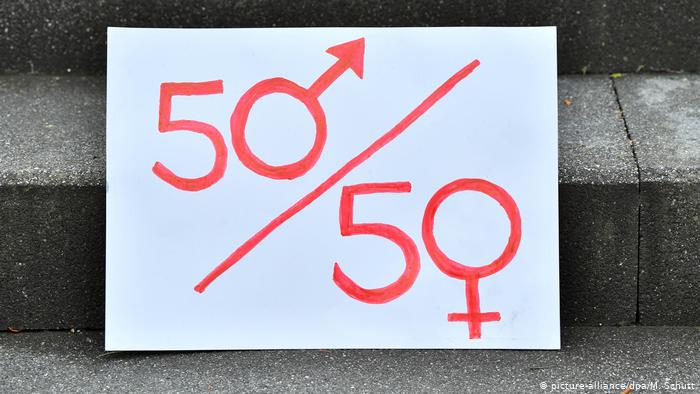MDC Alliance has created a gender drive taskforce team as the opposition party seeks to increase female candidates in the upcoming elections.
This decision was made at the party’s National Executive Committee Meeting held May 29.
“We remain committed to implementing gender parity in our movement. To achieve 50-50 gender parity in the deployment of party representatives, the National Executive Committee has commissioned a nine-member Smart Gender Drive Taskforce with the following members, Ellen Shiriyendenga, Monia Mukwanda, Sesil Zvidzai, Precious Ndlovu Cecilia Chimbiri, Kudzai Kadzombe, Jasmine Toffa, Murisi Zwizwai and Olipha Lisitu,” said the party in its communique.
This move is said to be in line with Article 5.9 of the Party’s Smart Policy document on Women’s Rights, which states that the SMART Pledge is fully sensitive to the status of women in Zimbabwe, as there are a lot of laws, norms and practices that perpetuate male dominance within the country.
“The SMART PLEDGE will work in tandem with the objectives set out in Agenda 2030 SDG No 5 which seeks to Achieve Gender Equality and Empower All Women and Girls,” said the party.
Party insiders told CITE that this was long overdue, as there was hypocrisy on the ground, seen by the reduction of female candidates.
“There is a reduction of space for women, so much for people who say, ‘we want to parrot this’ but what are they doing to make sure there is gender equality,” said the party members.
Party members referred to an incident where the party’s Bulawayo province had made a resolution to field women contestants for their primaries but that did not happen in their favour.
According to Article 6.1.4.3 of the MDC Alliance Constitution, a province can select, choose or nominate candidates for national elections for acceptance or rejection by the National Council,
“Following the untimely death of elected Ward 8 councillor Ronia Mudara in July 2020, the Bulawayo Provincial Executive and Committee in its minutes of the meeting of October 2, 2020, resolved to reserve the seat for a female candidate because the deceased councillor was a woman,” sources said.
“As stated by the Electoral Act that any vacancy may be filled through a by-election, the Bulawayo MDC Alliance provincial structure was tasked to hold primary elections to fill the post of the candidate in the forthcoming by-elections. Primary elections had been scheduled for October 11, 2020, which, however, did not take place as planned due to a number of reasons chief of which was the imposition of a non-resident, Edwin Ndlovu as a candidate for Ward 8 thereby robbing the electorate of the chance to choose its own candidate.”
The party insiders also noted that the 2014 to 2019 Provincial Executive Council imposed a male candidate in Bulawayo’s Ward 6.
“We argued that if Ward 8 is not reserved for women nominees, the number of women representatives in public office will continue to dwindle.”
This concern was taken to the highest decision body, which is the National Council but the province was defeated, said the party members.
“Some members in the National Council pushed for male candidates,” sources said, adding they had reservations about some male candidates.
“There is a standing National Council resolution also dubbed the ‘Theresa Makone Resolution’ that calls for constituencies previously held by women to be maintained as such in order to show up the numbers of women in public office. This resolution was also taken in terms of Article 4.1 of the Party’s Constitution which states that ‘the MDC Alliance is a pro-poor, people-centred social democratic, non-racial and non-sexist movement which firmly supports gender parity in all the organs of the Party, engendering the 50-50 gender representation principle.”
Party members said as the opposition party now moves to implement this 50-50 drive through the gender task force, the United Nations Convention for the Elimination of all forms of Discrimination Against Women (CEDAW), which Zimbabwe has ratified, must be observed to allow high female participation in the country’s politics.
In the 2018 elections, of the 210 parliamentary seats, only 26 went to women mainly in the ruling Zanu-PF and the MDC Alliance, while other contenders from minority parties were defeated.
For the four female presidential candidates who contested, Dr Joice Mujuru of the People’s Rainbow Coalition, Dr Thokozani Khupe of MDC-T, Violet Mariyacha of the United Democratic Movement and Melba Dzapasi of #1980 Freedom Movement Zimbabwe, they only managed to receive less than five percent of the total votes cast.
The situation was no better in local authority elections where the figures were more or less in the same margins, eclipsing expectations that the country was edging towards gender parity in politics.

